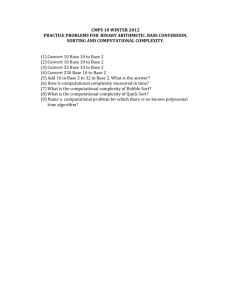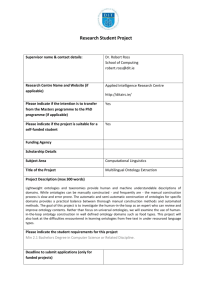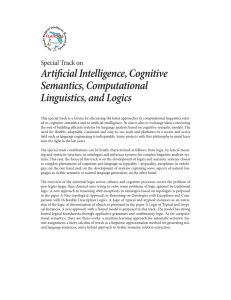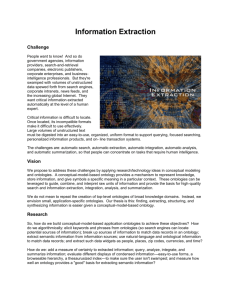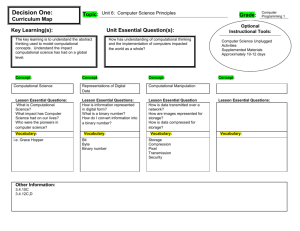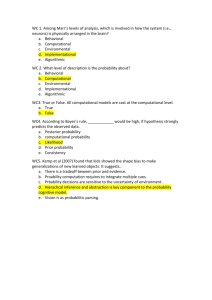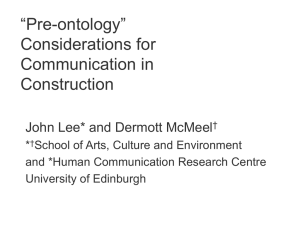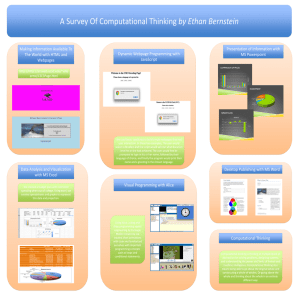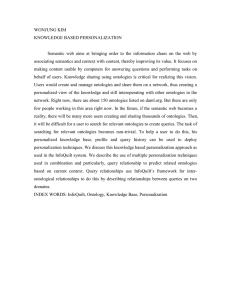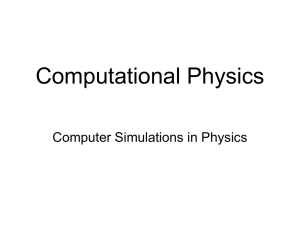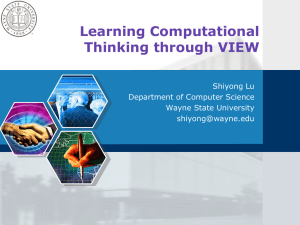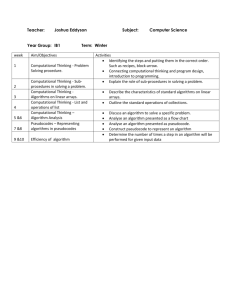Computational Knowledge Representation
advertisement
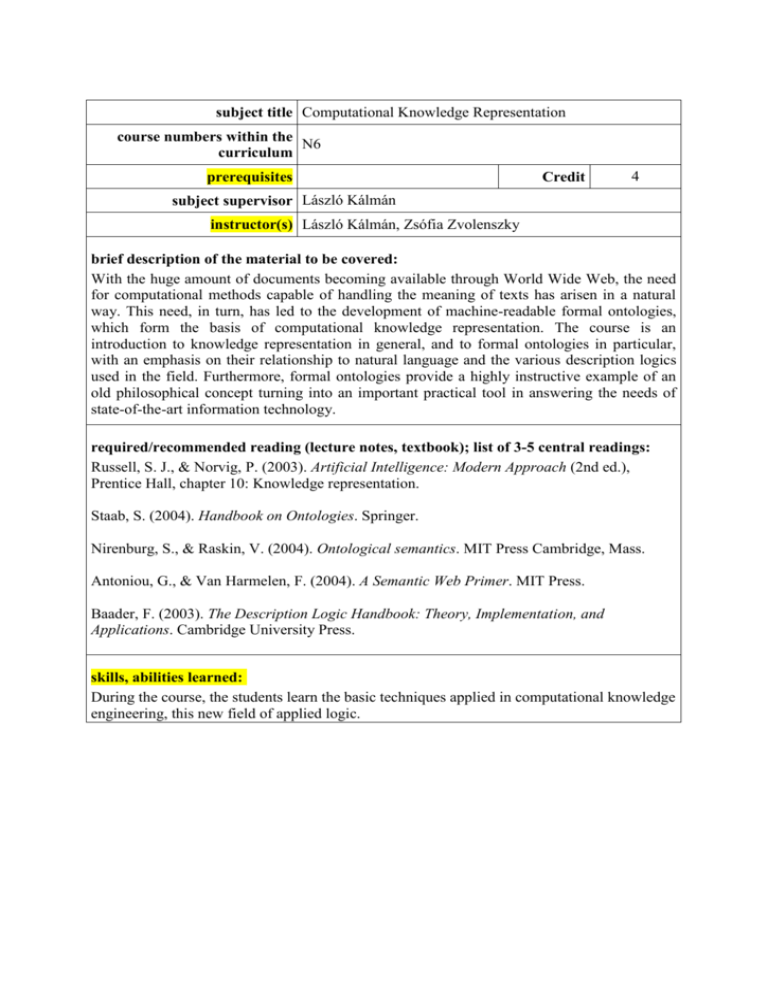
subject title Computational Knowledge Representation course numbers within the N6 curriculum prerequisites Credit 4 subject supervisor László Kálmán instructor(s) László Kálmán, Zsófia Zvolenszky brief description of the material to be covered: With the huge amount of documents becoming available through World Wide Web, the need for computational methods capable of handling the meaning of texts has arisen in a natural way. This need, in turn, has led to the development of machine-readable formal ontologies, which form the basis of computational knowledge representation. The course is an introduction to knowledge representation in general, and to formal ontologies in particular, with an emphasis on their relationship to natural language and the various description logics used in the field. Furthermore, formal ontologies provide a highly instructive example of an old philosophical concept turning into an important practical tool in answering the needs of state-of-the-art information technology. required/recommended reading (lecture notes, textbook); list of 3-5 central readings: Russell, S. J., & Norvig, P. (2003). Artificial Intelligence: Modern Approach (2nd ed.), Prentice Hall, chapter 10: Knowledge representation. Staab, S. (2004). Handbook on Ontologies. Springer. Nirenburg, S., & Raskin, V. (2004). Ontological semantics. MIT Press Cambridge, Mass. Antoniou, G., & Van Harmelen, F. (2004). A Semantic Web Primer. MIT Press. Baader, F. (2003). The Description Logic Handbook: Theory, Implementation, and Applications. Cambridge University Press. skills, abilities learned: During the course, the students learn the basic techniques applied in computational knowledge engineering, this new field of applied logic.
